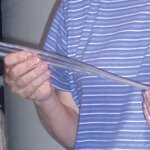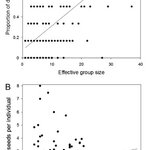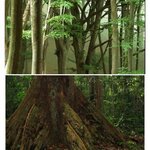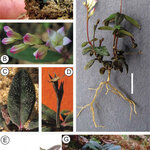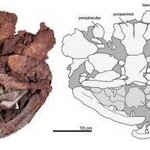
The first video of tool use by a fish has been published in the journal Coral Reefs by Giacomo Bernardi, professor of ecology and evolutionary biology at the University of California, Santa Cruz. In the video, an orange-dotted tuskfish digs a clam out of the sand, carries it over to a rock, and repeatedly throws the clam against the rock to crush it.
Tool use was once considered an exclusively human trait, but Jane Goodall's reports of tool use in chimpanzees in the 1960s changed that. Since then, many other animals have been observed using tools, including various primates, several…
